Flat-Coated Retriever
Flat-Coated Retriever is a relatively new breed developed for hunting on land and in the water. Today they are still used for retrieving purposes. The Hallmark of this dog breed is their unique long head. He is the same height as his cousin Labrador Retriever, but these dogs are leaner and have a more elegant look.
The most interesting facts about this dog breed are that they mature slowly, and many owners say they will remain childish all their lives. Since this dog is bred for working purposes, they have high energy and require a lot of activity if you want to ensure that your dog will be happy and satisfied. They love everyone, and they will get along excellent with everybody.
FUN FACT: Flat-Coated Retrievers are usually called Petar Pan retriever dogs.

Height:
22–25 in (56–64 cm)

Weight:
60-70 lb (27-32 kg)

Origin:
Great Britain

Life Expectancy:
8-10 years
Dog Breed Characteristics
Although these dogs are not widely popular, they are recognized by the FCI and the AKC. The Standard of these dogs describes them as active, medium in size with an intelligent expression. They are generous with natural gundog ability, confident, and kind.
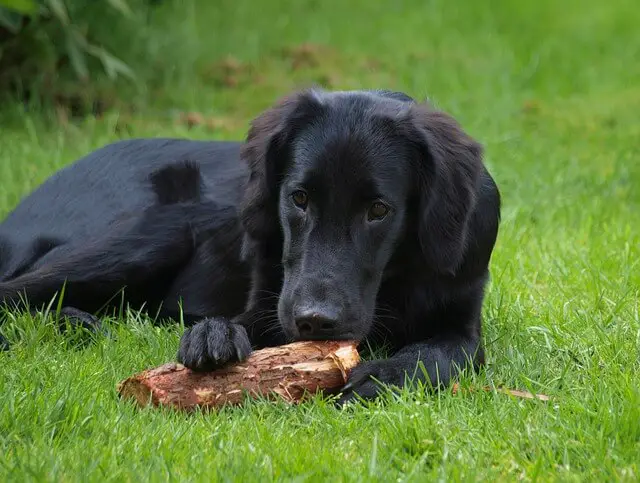
Flat-Coated Retriever Coat
These dogs have a straight and moderately long coat that serves the purpose of protecting the dog from various weather conditions. These dogs are easy to maintain. They will need occasional brushing to secure your dog to look at his best. During shedding season, you will have to brush him more frequently (daily). Coat colors that are allowed are solid black, solid liver, and a deep reddish-brown.
The rest is basic care: trim their nails when you hear them clicking on the floor, brush their teeth regularly, and regularly check their ears. Because they love water like most retrievers, you must check their ears for any sign of redness or bad odor to prevent infection.
To be sure that your adult dog will enjoy all these things, you need to start with them as early as possible. That way, your puppy will get used to them, and you will not have problems later in life.
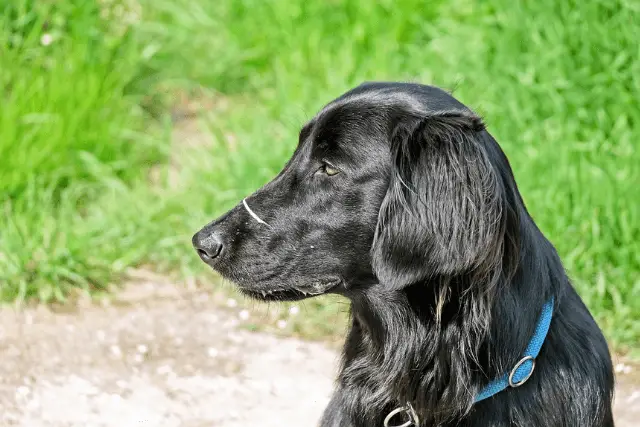
Exercise
Since this is an active and energic dog breed, they require a decent amount of daily exercise to be happy. They will enjoy all activities that include their owner, but also they will enjoy participating in obedience, agility, and rally. They will make an excellent jogging partner.
You must be careful while exercising your puppy because you don’t want to overtrain him. Too much exercise can have a negative impact on your puppy, and he can develop some serious health problems (joint problems etc).
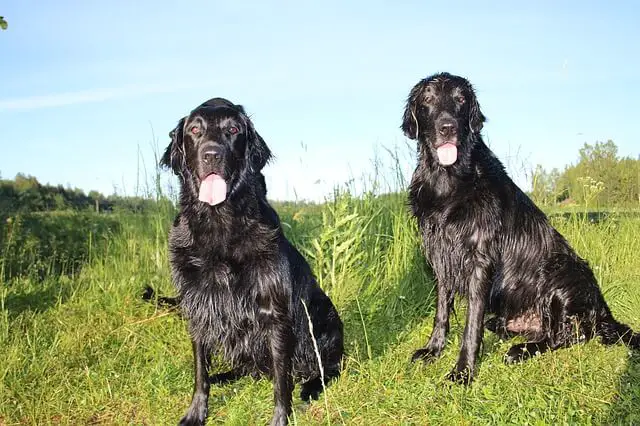
Flat-Coated Retriever Training
Flat-Coated Retrievers are highly intelligent dogs that don’t respond well to hard training methods. They are eager to please, so it is advised that you use positive training reinforcements, and with that, you will get the best possible results.
Socialization
Flat-Coated Retrievers are generally very good dogs, but they will still need to be socialized for you to end up with a good dog. The recommendation is that you start as early as possible and expose your dog to many different sights, sounds, people, other dogs, and animals so he can learn how to properly react and communicate with other animals.
With the right socialization, you can be sure that your dog will be obedient and that you will not have any problems later in life.
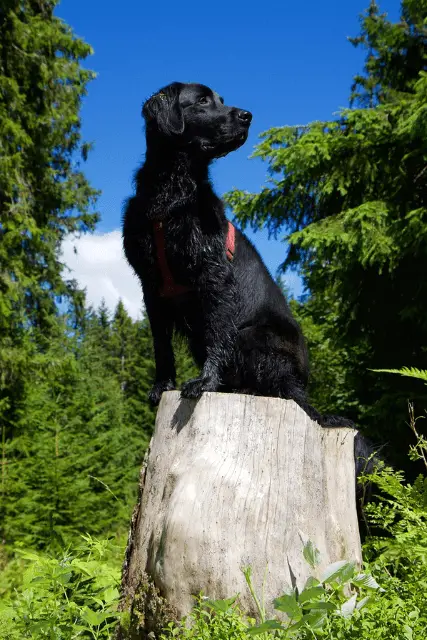
Flat-Coated Retriever and kids
Flat-Coated Retrievers are known to be great partners for children. They can play for hours without getting tired, and they will enjoy the kids' company. However, they are best suited for older kids only because because of their size, they can easily knock the child over during play.
But keep in mind that these dogs are not aggressive, and you shouldn’t have any problems with them playing with the kids. It is also very important that you teach your kids from an early age how to properly approach and play with the dog.
Other pets
These dogs can get along well with everybody. They will enjoy the company of other pets in households. Be prepared that these dogs will try and chaise the birds because even though you didn’t train your dog for work purposes, he has inherited the drive for birds.
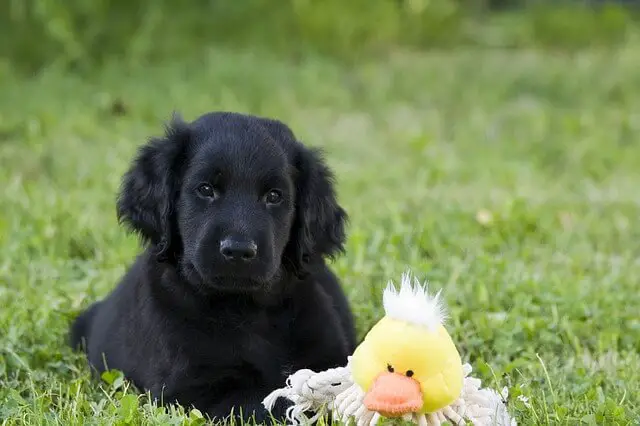
Health problems
These dogs are generally healthy, but like any other dog breed, they are also prone to health problems. You must know that not all dogs will get any of these diseases, but it’s a lot better if you know what they are if you consider this dog.
Some of the health problems that can occur with these dogs are
- hip dysplasia,
- osteosarcoma,
- patellar luxation,
- bloat.
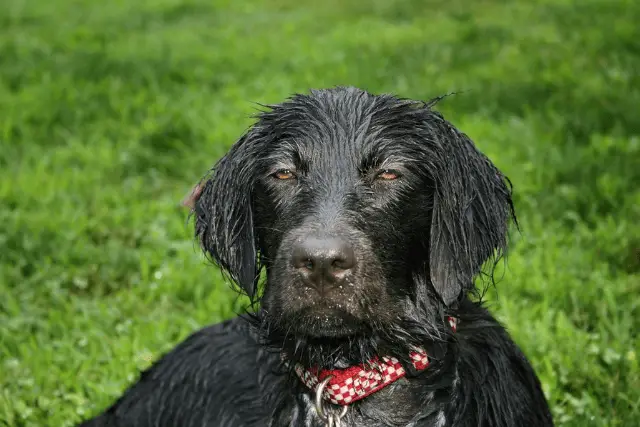
To be sure that your dog will have a smaller chance of getting any of these problems, always buy a dog from a responsible and official dog breeder who regularly tests his breeding dogs and takes good care of his puppies.
Flat-Coated Retriever Breeders
Before searching for Flat-Coated Retriever breeders, be sure that this is the right dog for you and your family. We mentioned that they are highly active, and you must secure them with daily activities so your dog will be happy and healthy. These dogs are not so popular so you must do very good research before buying a puppy.
If possible, always find a few choices of breeders. Always ask the breeder for all the health certificates of his breeding dogs, and if possible, try to see the mother of the puppies in person. That way, you can check the conditions where the dogs are living and how the breeder is taking care of them. Because they are not so popular, be prepared that you will have to wait for your puppy.
SEARCH FLAT-COATED RETRIEVER BREEDERS
World Dog Finder team

Updated at31.08.2023.
Breed History
The first breeding of these dogs started in the mid-1800s. Flat-Coated Retrievers were Britain's most popular retriever dogs, but they were later overtaken by Labradors and Golden Retrievers. At that point numbers of these dogs significantly decreased, and the breed faced extinction.
Because of breed enthusiasts, the breed regained popularity mid-1960s. Today this is still a rare dog breed, and be sure that you will be put on the waiting list if you are searching for one of these dogs.
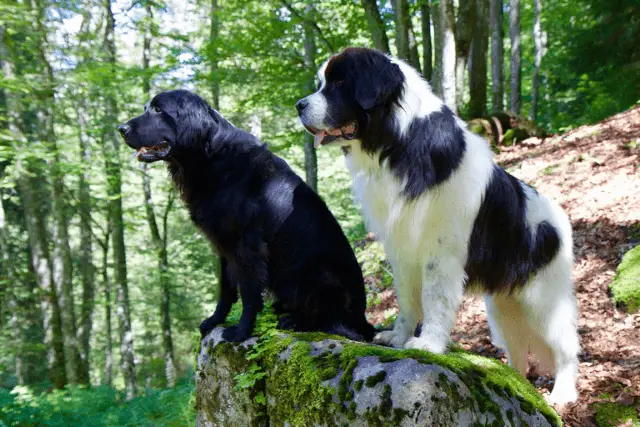
FUN FACT: Flat-Coated Retriever was recognized by the AKC in 1925.
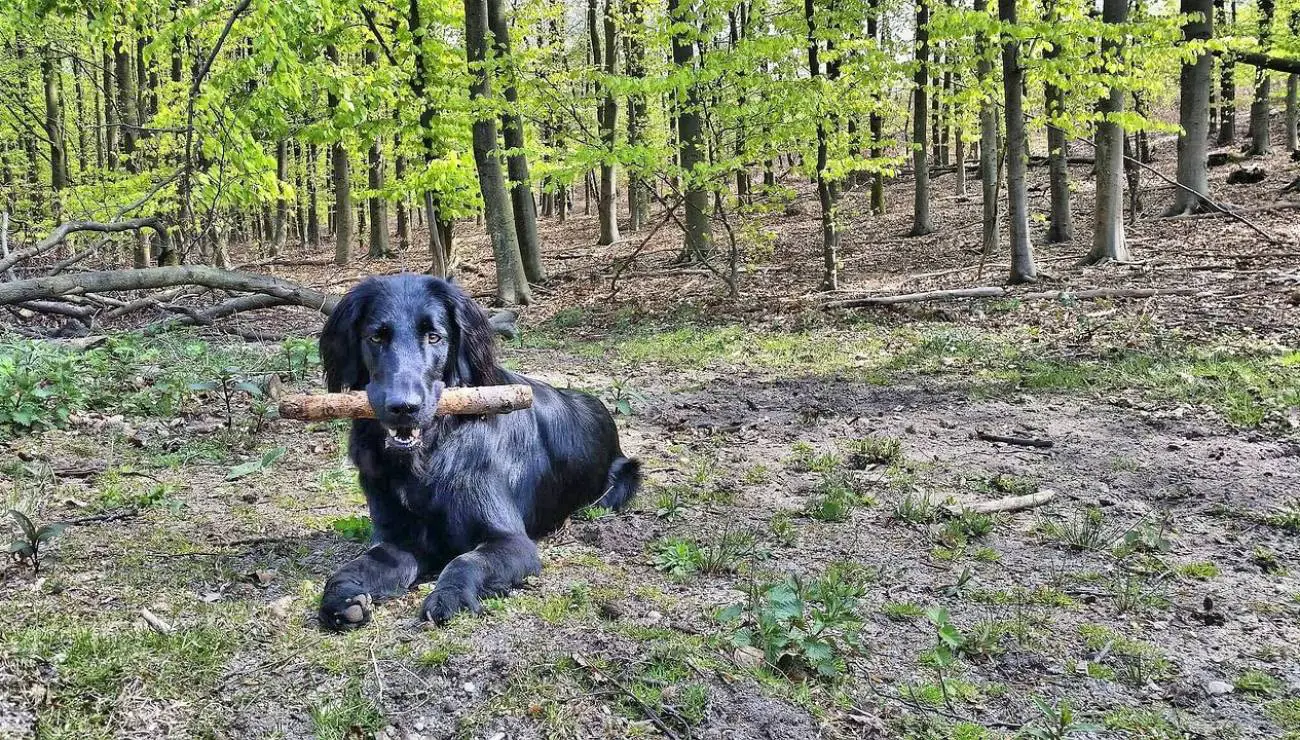
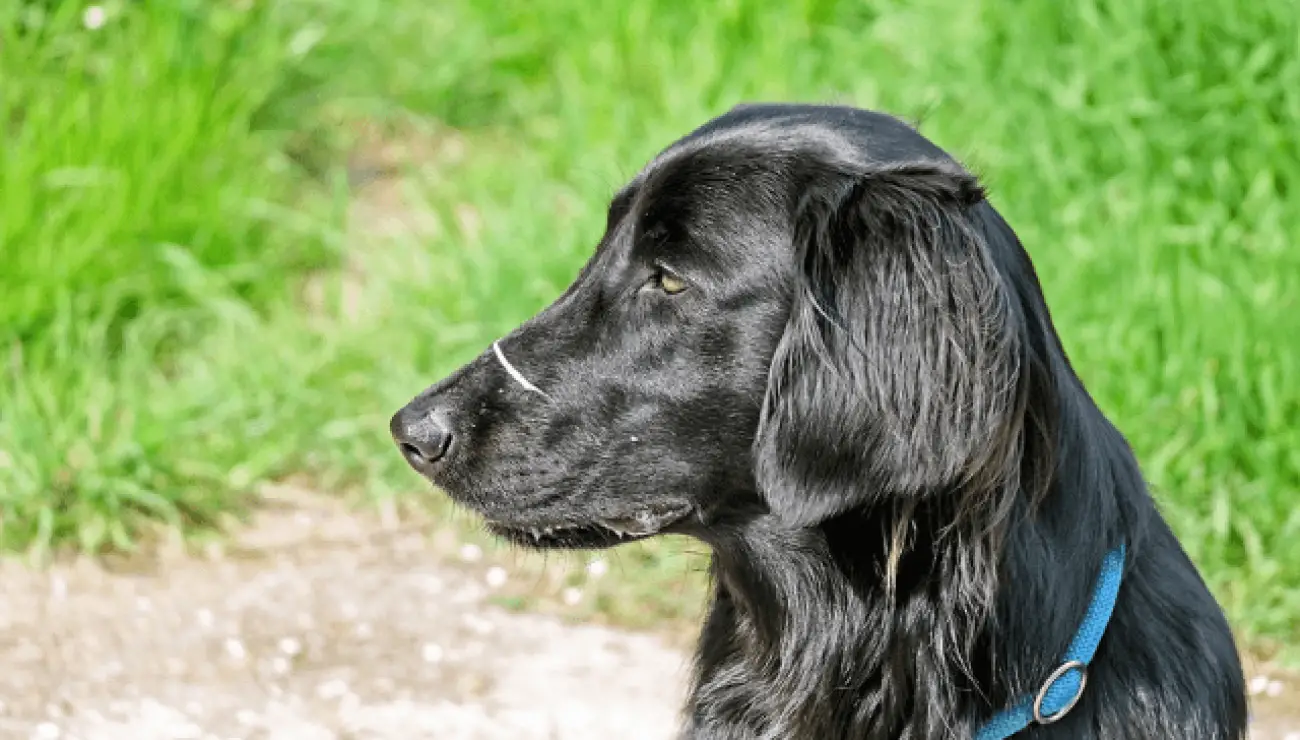
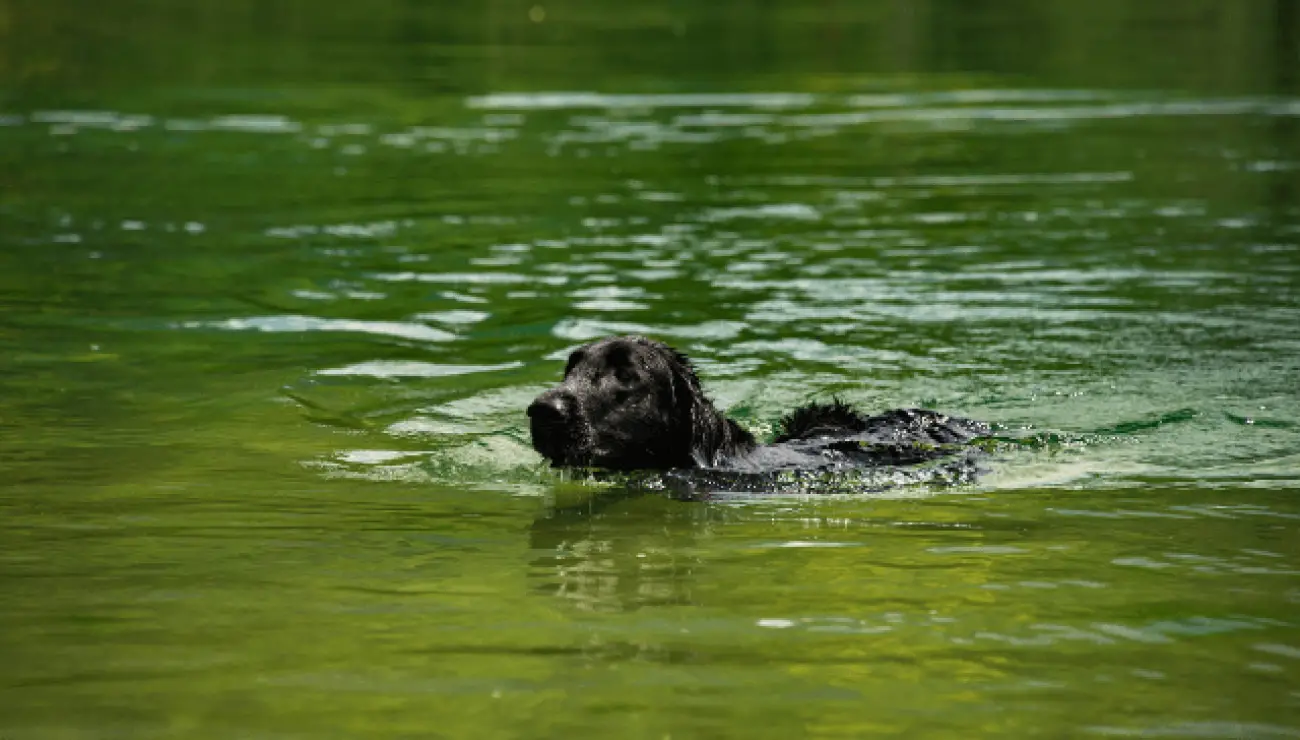
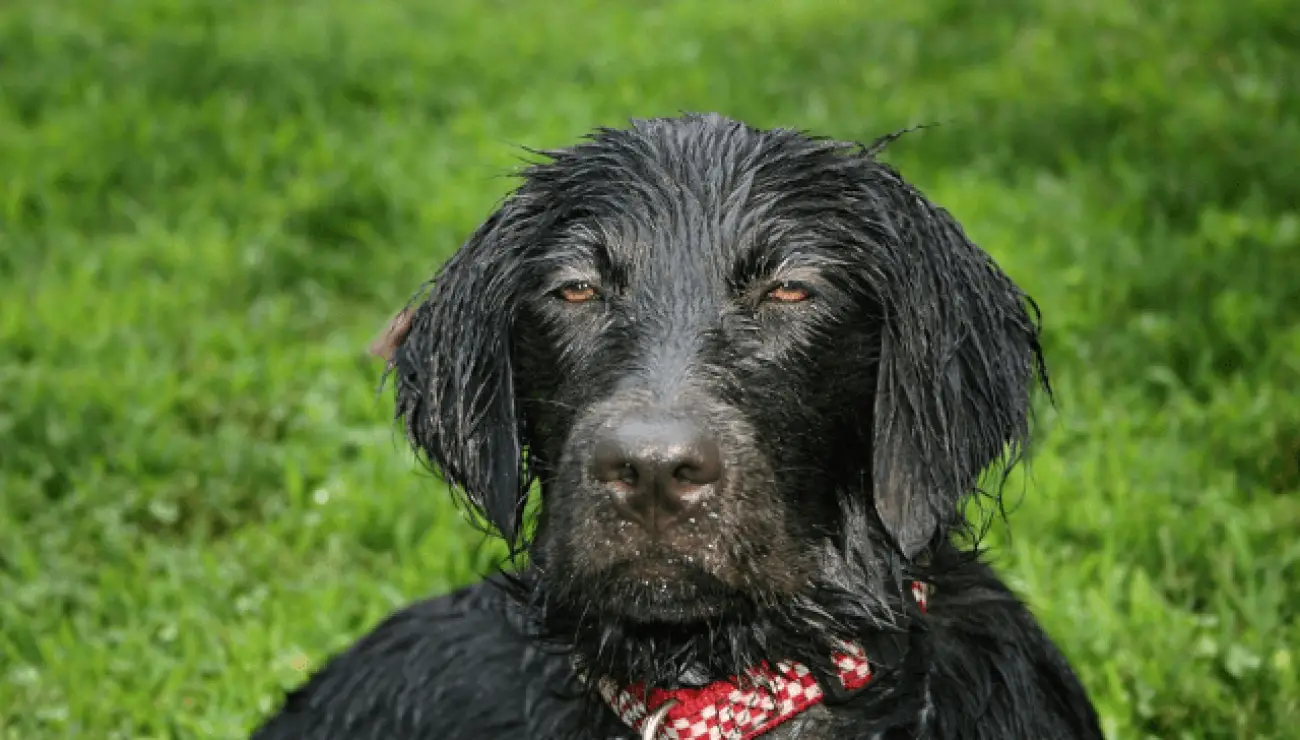
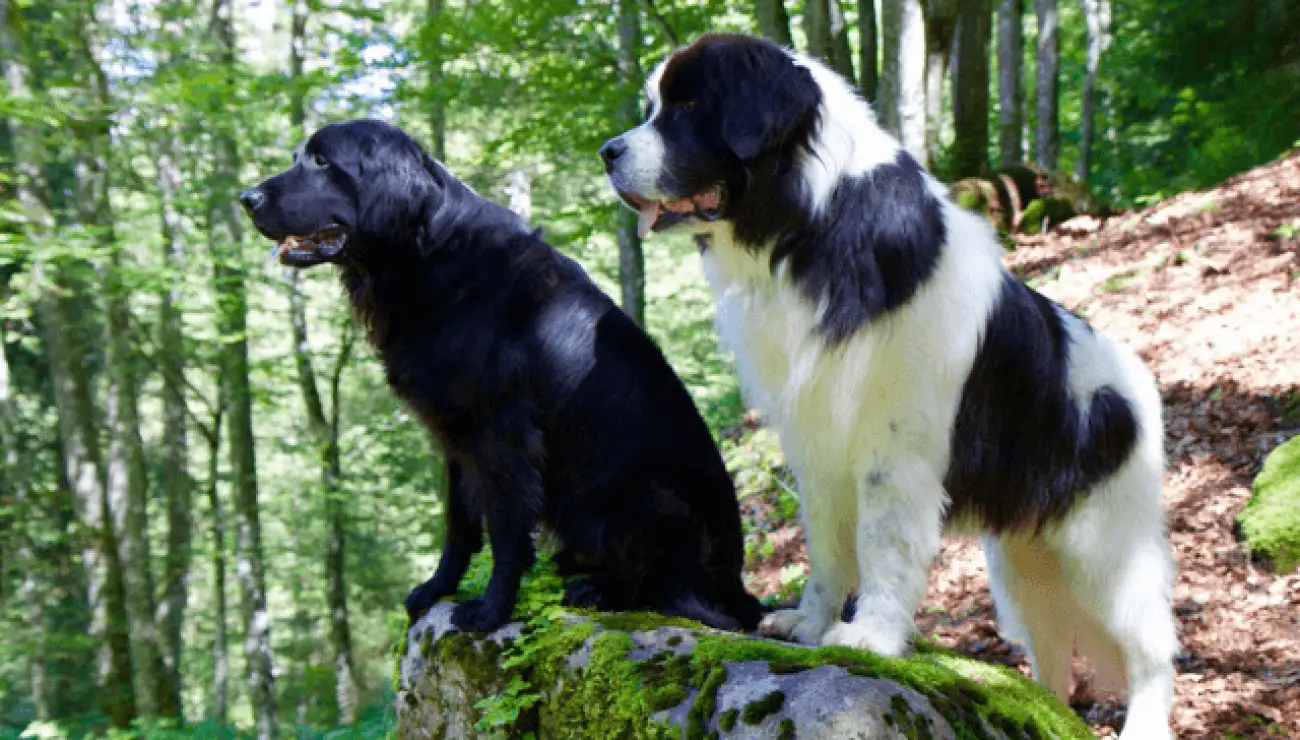
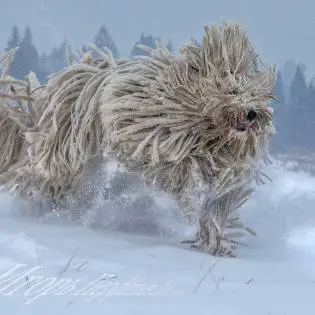
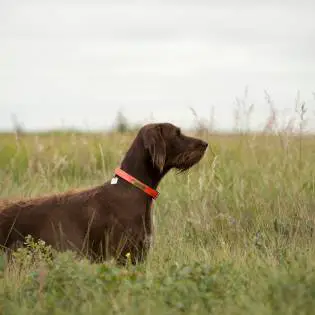
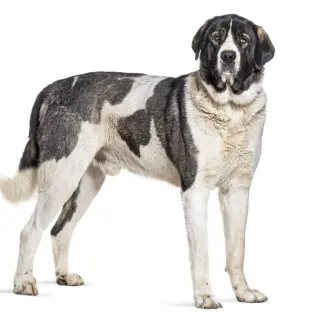
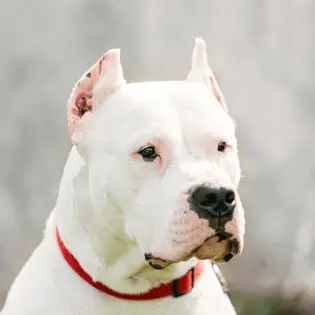
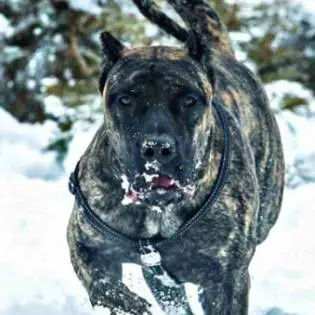
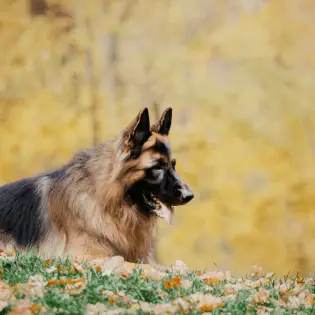
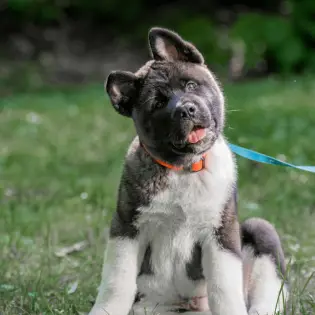
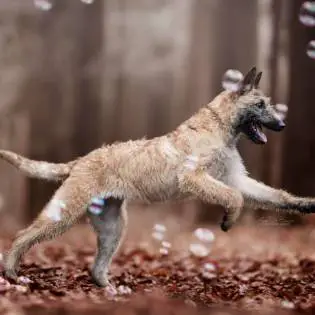
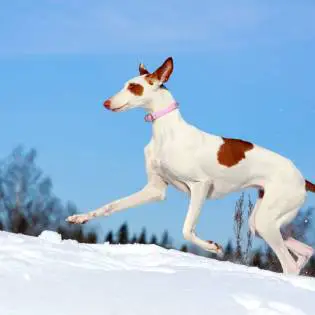
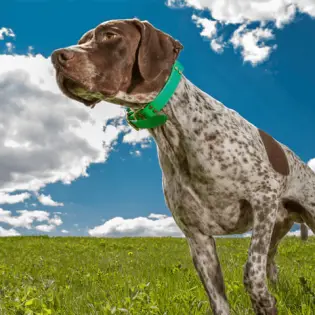

Share